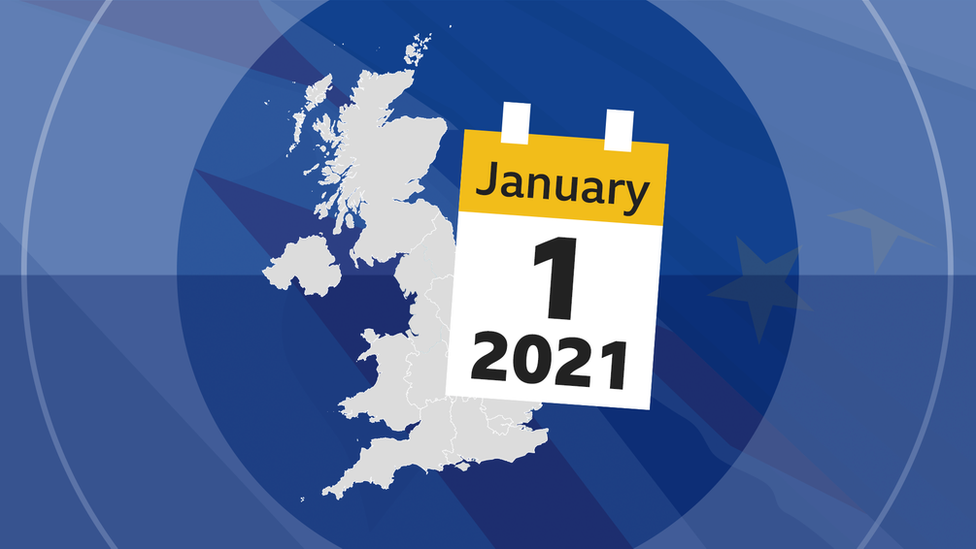Brexit: Why a trade deal is different for Northern Ireland
- Published
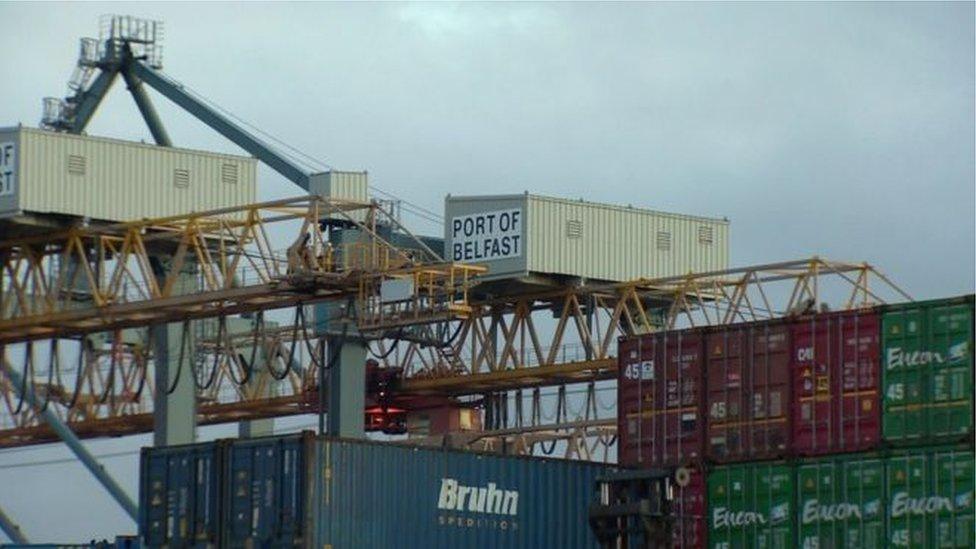
Goods arriving from Great Britain will be checked and controlled at Northern Ireland's ports from 1 January 2021
A Brexit trade deal helps mitigate some of the problems created by the new Irish Sea border but there are still big changes on the way.
The EU and UK already had a deal on Northern Ireland.
It is called the Northern Ireland protocol and it formed part of last year's withdrawal agreement.
Its fundamental purpose is to prevent a hardening of the border between Northern Ireland and the Republic of Ireland.
The protocol does that by keeping Northern Ireland in the EU's single market for goods and by having Northern Ireland apply EU customs rules at its ports.
That means goods arriving from Great Britain will be checked and controlled at Northern Ireland's ports from 1 January.
But goods going into the Republic of Ireland and the wider EU will face no new checks or controls.
This arrangement would still have applied even if a wider trade deal had not been agreed.
The direct impact of a trade deal
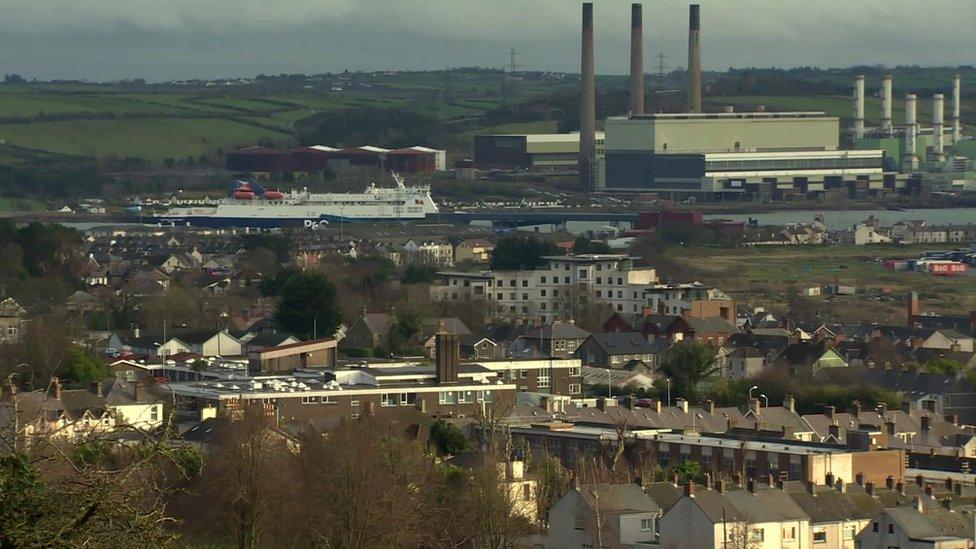
Northern Ireland has five commercial ports including this one in Larne, County Antrim
The deal should make it easier to cope with some of the new customs issues between Great Britain and Northern Ireland.
The EU had concerns that goods could travel from Great Britain through Northern Ireland, on into the Republic of Ireland and the wider EU without paying the correct EU tariff.
In other words, Northern Ireland could become a tariff-dodgers' backdoor into the EU's customs union.
The solution was that some goods would be deemed "at risk" and hit with an EU tariff as they entered Northern Ireland from Great Britain.
The tariff could be rebated if it could be shown the goods were consumed in Northern Ireland.
Last week, the EU and UK agreed that a new "trusted trader" scheme would be used to minimise the number of transactions deemed to be at risk.
However, the details of this scheme are still emerging and the situation has left businesses facing major new complexity, at very short notice, on GB-NI trade.
But the trade deal eliminates tariffs on all goods traded between the UK and EU so the "at risk" goods issues is hugely reduced.
If there are no tariffs then there is no risk.
However, the issue does not go away entirely.
There is still the issue of "third country" goods - products from outside the EU or UK entering Northern Ireland.
If the UK tariff on these goods is significantly lower than the EU tariff they could still be classed at risk.
Northern Ireland firms still have an advantage
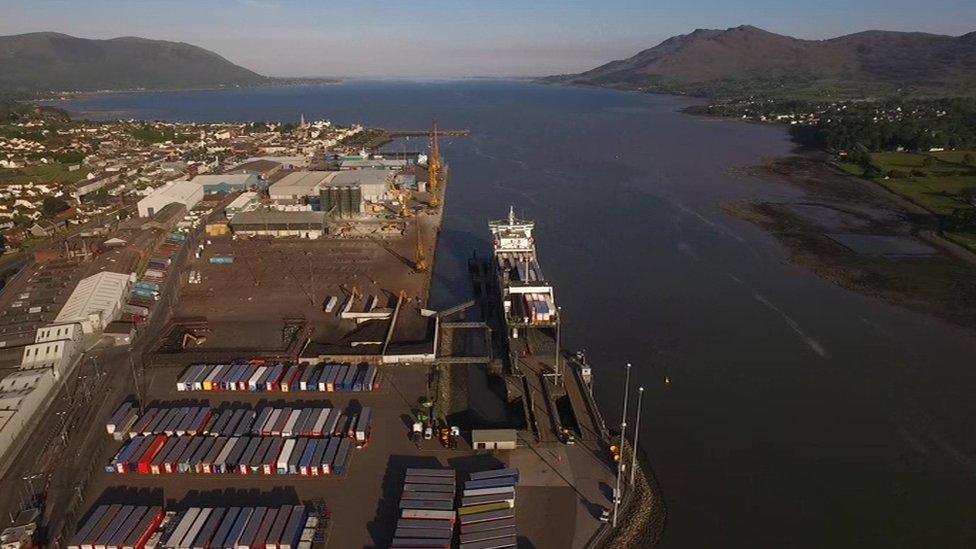
The town of Warrenpoint in County Down is home to the second largest port in Northern Ireland
Even with a trade deal, Northern Ireland businesses have an advantage over GB firms.
The deal eliminates tariffs for UK businesses trading with the EU.
But only Northern Ireland firms will avoid new regulatory checks because they will still be following EU single market rules.
Northern Ireland may also be able to mitigate disruption at the English Channel ports in a way other parts of the UK cannot.
For many businesses on the island of Ireland, the easiest way to get their goods into the EU is a ferry to Britain, a drive to a channel port and then another short ferry trip.
In anticipation of disruption at the channel, ferry companies have greatly increased their capacity on direct routes to the EU from Irish ports, particularly Rosslare.
This will allow Northern Ireland companies to make what is an intra-single market movement with no new checks or paperwork.
Policing and security
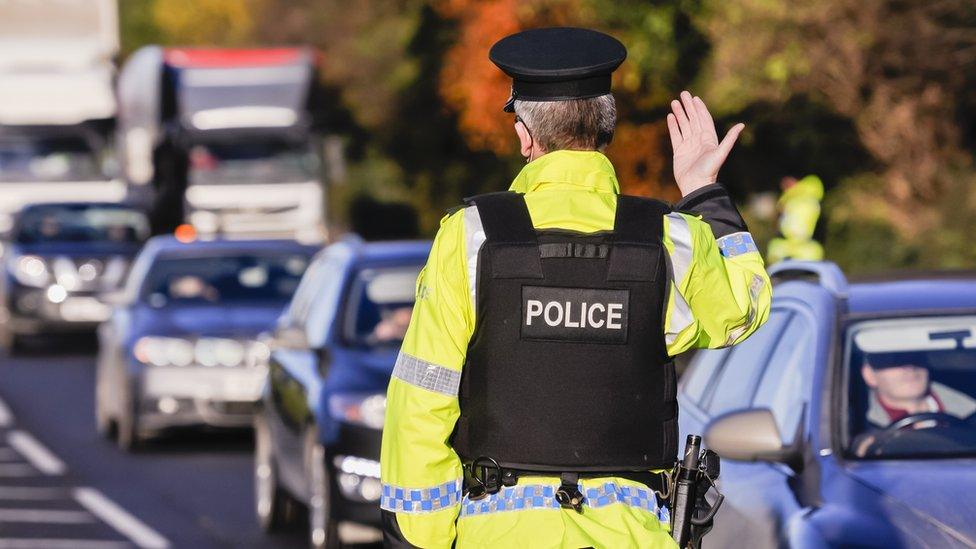
The Northern Ireland Protocol was primarily concerned with trade in goods.
It didn't cover policing and security so without a wider deal the PSNI faced losing access to information held on a range of EU databases.
This was a particular concern as paramilitary and criminal gangs often operate on both sides of the border.
The deal means that while the PSNI and other UK police forces will no longer have access to sensitive EU databases there will be new mechanisms for swift exchange of information such as DNA, fingerprints and vehicle registrations.
The UK will also no longer be part of the European Arrest Warrant Scheme but the EU says there will be new streamlined extradition procedures.
The European Commission said the deal will support "the swift surrender of criminals, avoiding lengthy extradition procedures thanks to streamlined processes, strict deadlines, robust safeguards, procedural rights and judicial control".
Related topics
- Published24 December 2020
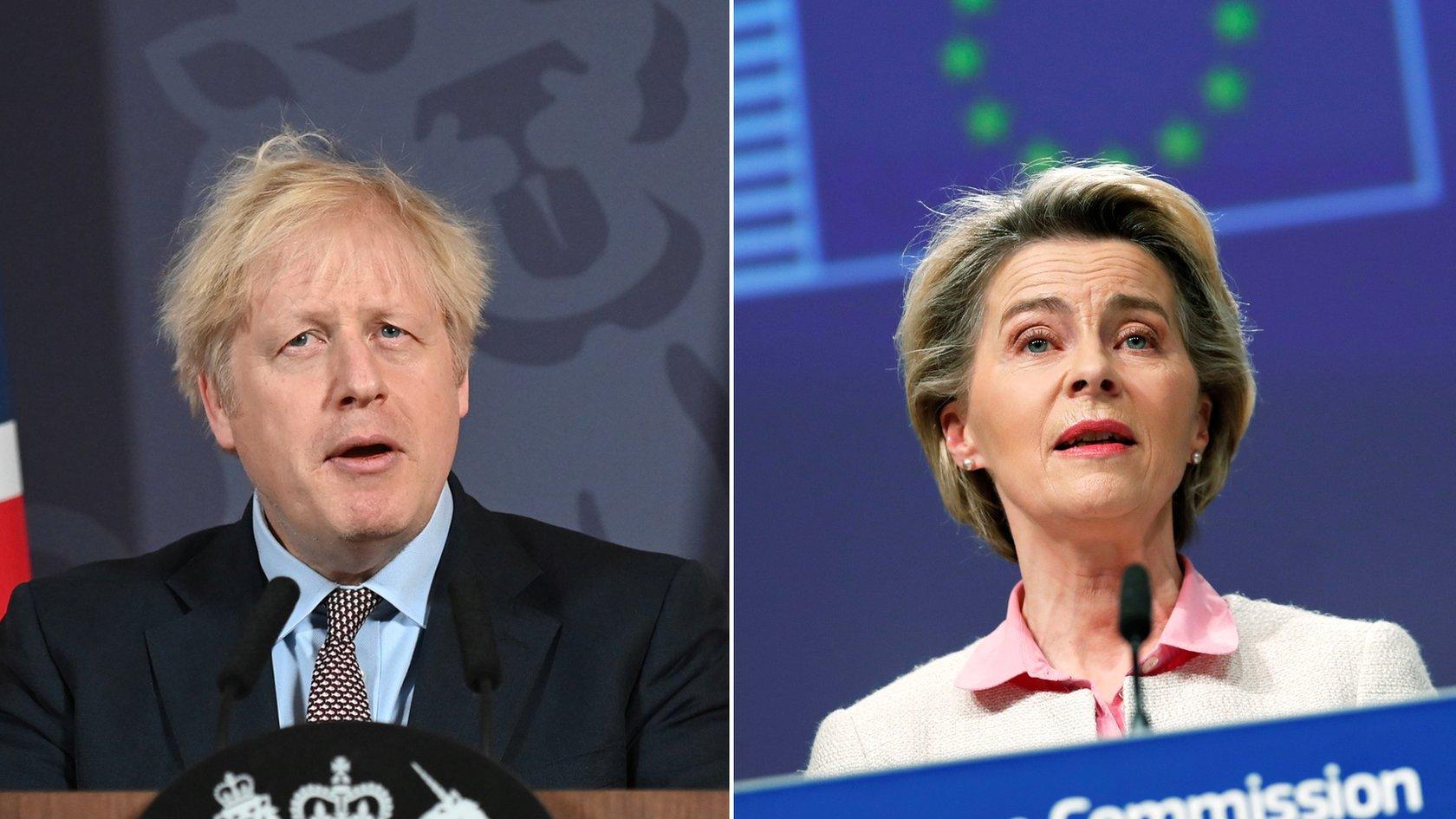
- Published23 December 2020

- Published23 December 2020
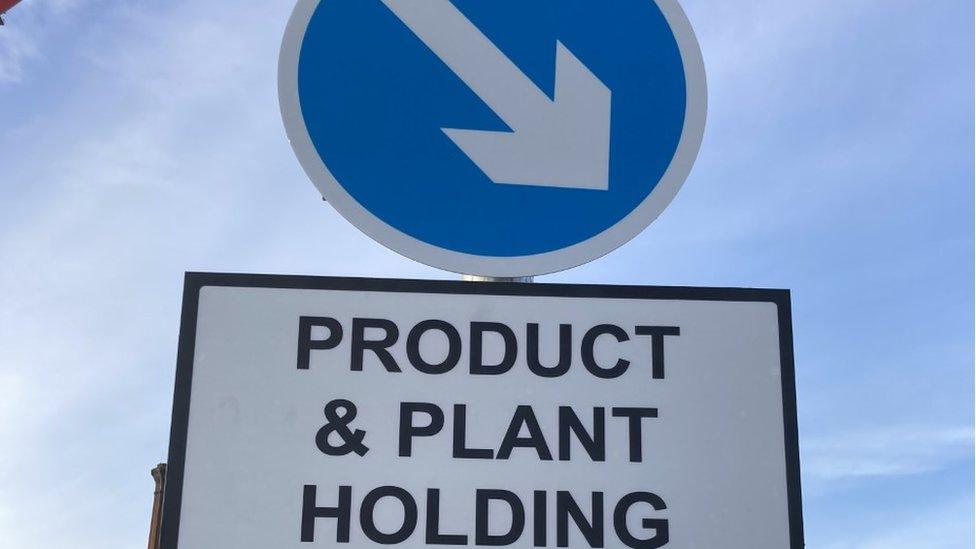
- Published28 January 2021
